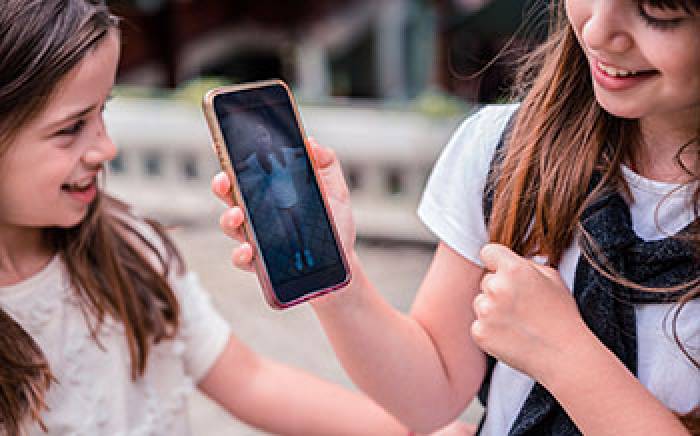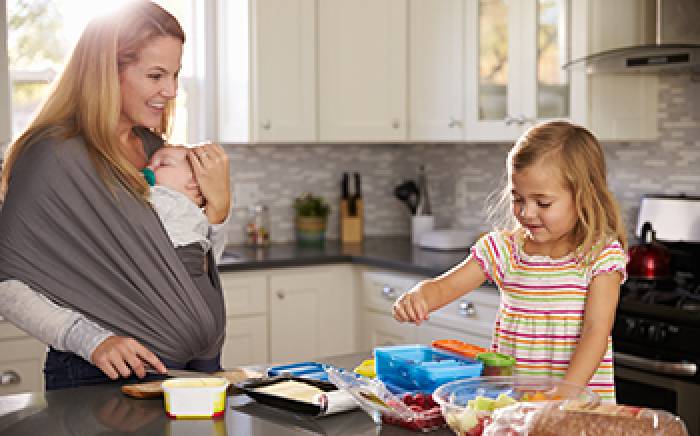Children use their eyes and ears to understand the world around them. When something is wrong with either, it can keep kids from learning and developing.
Many vision and hearing problems happen early in life. Here’s what families need to know about them.
“Hears” the Thing…
Children learn to speak by listening to mom and dad. They start as soon as they’re born. When babies and young children can’t hear well, language skills may not develop normally.
Sometimes, hearing loss has already happened when babies are born and is permanent. It may be caused by ear shape, genes, or problems that happened during pregnancy and birth. A hearing doctor called an audiologist can help these children.
Hearing loss can happen after birth, too.
“Ear infections can cause fluid to build up and make it hard to hear,” says Jamie Cadieux, AuD, CCC-A, a pediatric audiologist and supervisor of audiology and cochlear implantation at St. Louis Children’s Hospital. “These hearing problems clear up after a few weeks of treatment. But if they continue, parents should get help from an ear, nose and throat doctor.”
An older child who had many untreated ear infections, other illnesses, such as meningitis, or a head injury can also lose his hearing permanently or have a hearing problem that gets worse over time.
“Problems that develop slowly are harder to diagnose, and we don’t always know why they happen,” Dr. Cadieux says. “That’s why regular hearing tests are so important.”
Know the Signs
Signs of hearing loss can be different with age. Babies may not get startled when they hear a loud noise. Toddlers may not start talking or respond when you say their name. Older children may mumble, not say words correctly, struggle in school, turn up the volume on electronics or have trouble following directions.
Talk to a doctor if you are worried. There are a lot of things she can do to help. An audiologist can check your child’s hearing. She can also work with an ear, nose and throat doctor to find out what caused the problem and offer ways to fix it.
“The sooner we find out there’s a problem, the better,” Dr. Cadieux says. “Medicine, hearing devices and therapy can help correct hearing loss and get children’s development back on track.”
The Eyes Have It
Vision problems can also start when children are young, or they can develop over time. Children who can’t see clearly may fall behind in school or have trouble socially.
Two very common children’s eye problems are lazy eye, which doctors also call amblyopia, and a condition called strabismus. Children with strabismus have eyes that do not line up. That can cause crossed eyes and/or double vision. Most of the time, these problems show up before age 5. They can be permanent if not corrected early.
As kids get older, they might develop nearsightedness. When this happens, a child can see items up close, but things that are far away appear fuzzy or blurry. The condition usually develops in school-age children.
Spotting a vision problem
Regular vision tests are important so doctors can fix problems before they harm a child’s learning and development.
For babies, who can’t read and often can’t sit still long enough for a doctor to check their eyes, parents can use their smartphone cameras to check for vision problems.
“Take a picture using the flash,” says Lawrence Tychsen, MD, ophthalmologist in chief at St. Louis Children’s Hospital. “Both eyes should have the same red-eye reflex. If it’s different between eyes, take your child in to have his eyes checked.”
Also, watch for squinting and watery eyes. Both are signs of eye problems.
Parents of school-age children may be told that short attention spans or problems with reading are caused by eye tracking defects or a need for glasses. But this is not common. Learning disabilities are rarely due to eye issues.
“Doctors aren’t with children every day, but parents are,” Dr. Tychsen says. “Parents are usually the first to notice trouble. Be on the lookout for warning signs and see an eye doctor if you think your child needs help.”
Need a doctor to check your child’s vision or hearing? Call St. Louis Children’s Hospital at 314.454.KIDS (5437) or toll-free at 800.678.KIDS.




